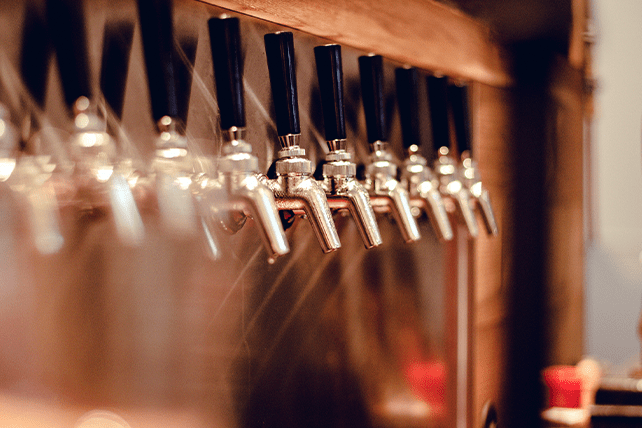What is one of the biggest myths about alcohol you’d like to debunk?
That alcohol brings with it this sense of joy. I really struggled with the idea that I’m funnier when I’ve had a couple, or that alcohol is what makes a really good party and it’s important to community. The reality is that alcohol is a depressant. And so alcohol actually explicitly works in contrast to your joy. It is literally a downer. And often in our relationships, it’s actually what is fueling disconnection. I can spend all night talking to you, but if at the end of it, I don’t remember what was said, did we connect? What I have found in my life is, I’m much funnier and much more joyful when I am present. When I’m in front of you, I’m really in front of you. The flip side of that also being that what I thought was fun in the evening was definitely not fun in the morning. Does your fun have a price to pay on the other side of it? And if that is the case, is that fun?
What should churches consider when offering wine during the sacrament of Communion?
I am not setting out to ban all Eucharistic wine, but I do wrestle with the fact that we have made accommodations for things like gluten free wafers, but not for people that are made ill by alcohol. There are also people who are not in addiction or recovery who don’t drink. It’s not just about sobriety. It’s about a greater awareness of the fact that we profess this is the table where we feast with God. And we numb the gift and beauty of that when we make a table that is not really open to everyone. In order for it to really be a foretaste of the banquet we await in the deeper presence of God, you should be able to offer it to all those who desire to receive it.
How have you encountered the resurrection while changing your relationship with alcohol?
I really didn’t realize the extent to which that depressant was actively working in my mind and my body and my soul. It was a way of life. It was in taking breaks from drinking that I began to notice, oh, wait a second, I’m not as depressed. So not even that large, profound, big, you know, Christ trampling down death kind of resurrection, but a really quiet resurrection. Jesus appearing on the way and just saying hi, and then knowing it is him.
I was able to begin showing up to myself and getting to know myself, and being able to start to feel for the first time in my life the most palpable and intense awareness of the Holy Spirit. I had not been able to receive the clarity of the Spirit, I believe, because of that numbing. I also had to figure out, what do I really like to do? A lot of recovery coaching is also figuring out your hobbies, because drinking takes up a lot of time. And then you have to fill it. So letting those be playful times. I got really into comedy. But really, the resurrection was coming alive inside of myself, loving myself in a way I’ve never loved myself before. It was because I was able to really feel that love of God that I was able to receive some of that and show some of it toward myself.
This article originally appeared here.

